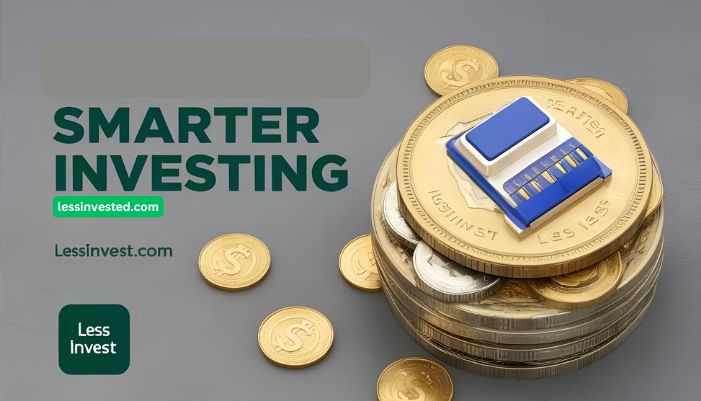Do you ever look at your clothes and ask, “Is this okay for work?” You’re not alone. Many men find it hard to dress for jobs that don’t need suits but still expect you to look nice. This is where business casual for men comes in. It’s not about wearing a suit and tie. And it’s not about wearing gym clothes. Business casual means dressing smart without being too formal. This guide will show you what to wear, what to skip, and how to look great at work with less effort.
What Is Business Casual for Men?
Business casual means you look neat and ready for work—but you don’t wear a suit. It’s a mix of relaxed and formal. You can move easily, feel comfy, and still look like you care.
Most offices today use this dress code. It works in schools, tech jobs, banks, and even shops. But the exact rules change from place to place. If you’re not sure, look at what your co-workers wear. Or dress up a bit on your first day, then adjust later.
What Clothes Should You Wear?
To keep it easy, we’ll break this into five parts: shirts, pants, shoes, outerwear, and extras. Let’s look at what works best.
Shirts: Keep It Simple and Clean
A good shirt can change everything. Here are your best picks:

Button-Down Shirts
These shirts have collars and buttons. Wear them tucked in for a clean look. Go for plain colors like white, blue, or gray. Small patterns like thin lines or tiny checks are fine too.
Polo Shirts
Polos are soft, simple shirts with collars. They are great for warm days or casual offices. Pick solid colors. Skip the ones with big logos or team names.
Sweaters
Sweaters are great in cooler weather. Wear them over a shirt or on their own. Stick to plain ones in navy, black, or gray. Make sure they fit well—not too baggy or tight.
Pants: Look Neat and Stay Comfy
What you wear on the bottom matters too. The right pants make you look put-together.
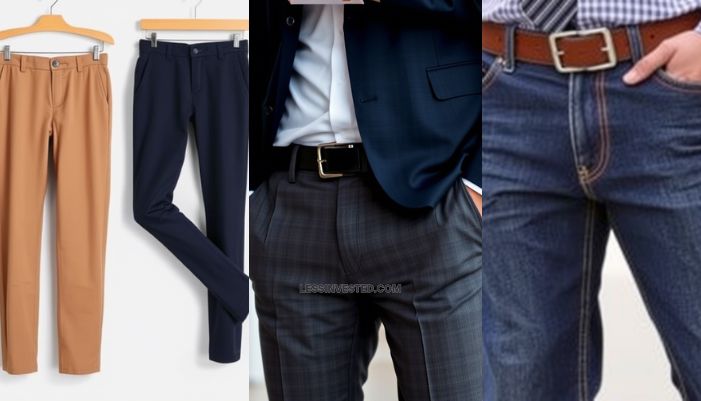
Chinos
These are the top pick for business casual. They’re soft like jeans but look neater. Get a few pairs in tan, navy, and black. They match almost anything.
Dress Pants
Some offices like things a bit more formal. Dress pants work well there. They have clean lines and fit nicely. Wear them with a tucked shirt or a sweater.
Jeans (Only in Some Jobs)
Some places let you wear jeans. But only if they are dark, clean, and not ripped. Always wear them with a nice shirt and shoes.
Shoes: Don’t Forget Your Feet
Shoes are a big part of how people see your outfit. You don’t need fancy ones. You just need clean, nice shoes.
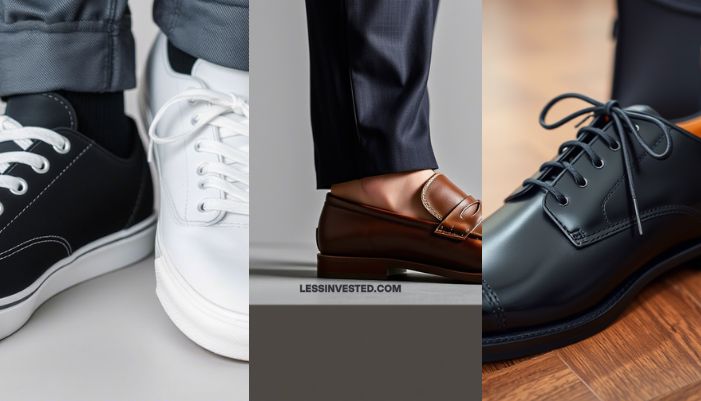
Loafers
Loafers slip on and look sharp. They work with chinos or dress pants. Choose leather or suede in black or brown.
Lace-Ups
Simple dress shoes with laces—like oxfords or derbies—are great for more formal places. Wear them if you’re giving a talk or going to a meeting.
Clean Sneakers (If Allowed)
Some jobs let you wear sneakers. Pick clean ones in black, white, or gray. No bright colors or dirty soles.
Outerwear: Dress for the Weather, Stay Stylish
You may need extra layers if it’s cold or raining.
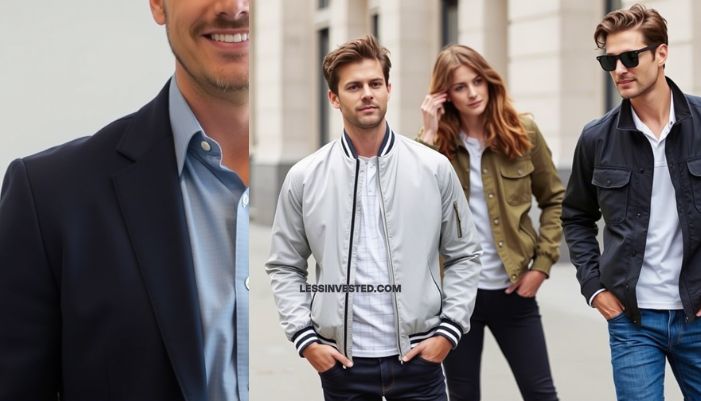
Blazers
A blazer is a jacket that makes you look sharp. You don’t need one every day, but it’s good to have for big days or client meetings. Go for navy or gray.
Casual Jackets
Light jackets like bombers, field jackets, or smart zip-ups can work well. Make sure they fit right and aren’t too bulky.
Extras That Make a Big Difference
Little things matter more than you think. Here’s how to keep your outfit strong.
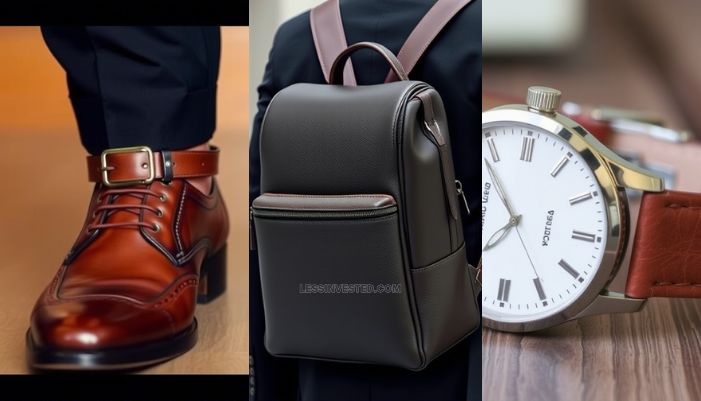
Belts
Match your belt to your shoes. Brown with brown. Black with black. It helps tie your look together.
Watches
You don’t need an expensive one. A simple watch with a leather or metal band is a great touch.
Bags
Skip old backpacks. Use a smart bag like a messenger bag or a leather backpack. It looks better and still holds all your stuff.
Common Mistakes to Avoid
Let’s keep things easy. Here are a few things not to do:
- Don’t wear clothes with wrinkles. Iron or steam them.
- Don’t mix too many patterns or bright colors.
- Don’t wear gym shoes or flip-flops.
- Don’t wear long dress shirts untucked.
- Don’t wear t-shirts unless you know they’re okay.
Business Casual Doesn’t Mean Boring
You can still show your style while keeping it smart. Here are some quick tips:
- Add color with socks or a fun tie (if ties are allowed).
- Roll up your sleeves on warm days for a relaxed feel.
- Mix and match different looks to find your vibe.
- Stick to clothes that fit you well—nothing too big or too tight.
FAQs: Business Casual for Men
Conclusion
Business casual for men is easy when you know the basics. You don’t need to spend a lot of money. Just choose clothes that fit, feel good, and look neat. Start with a few solid shirts, good pants, clean shoes, and add from there. With these tips, you’ll walk into work feeling confident and ready. Dressing well doesn’t have to be hard—it just takes a little care.



